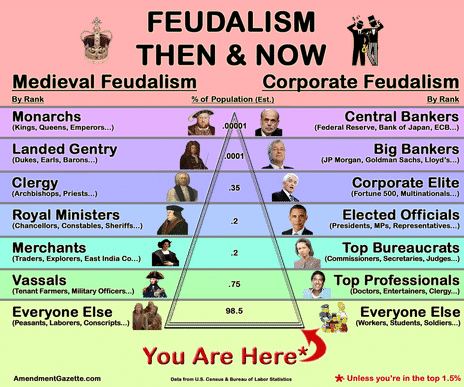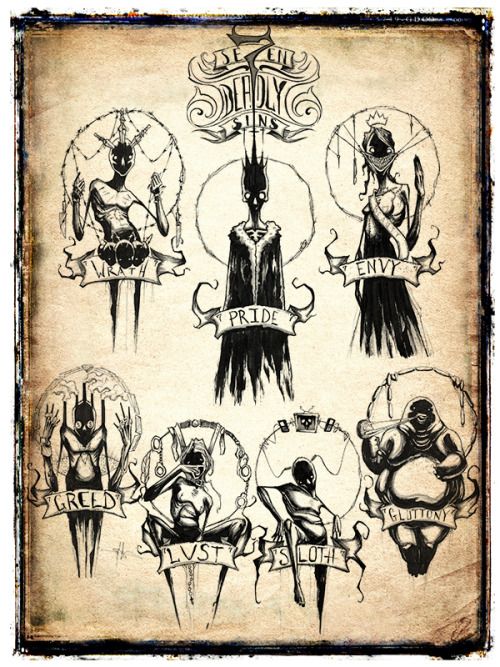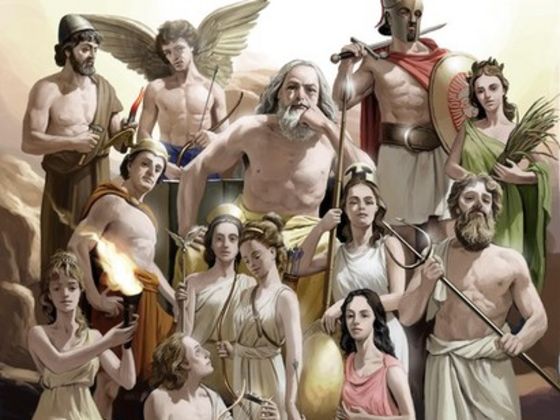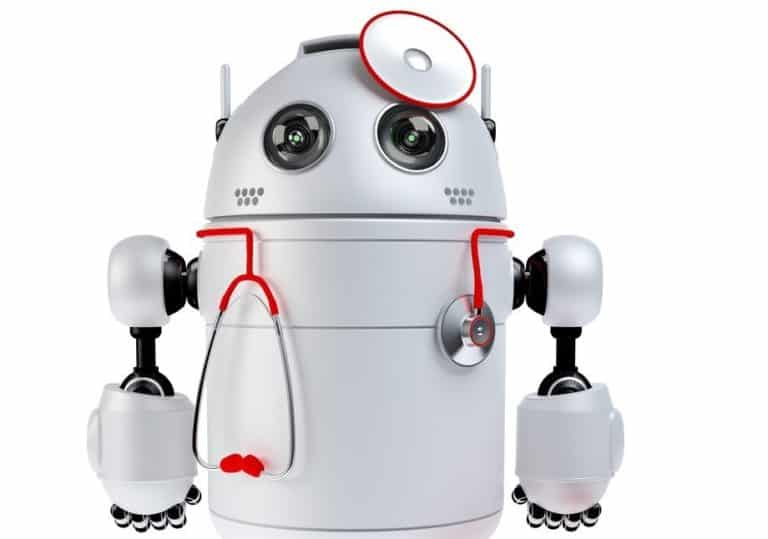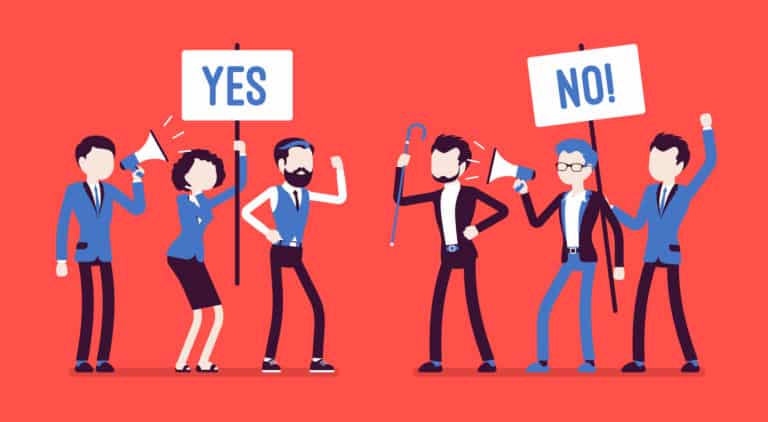The Modern Class System & Corporate Feudalism
The time we currently live in is invisibly defined by corporate feudalism. A lot of people insightfully point out that most first world democracies are not true democracies, but representational democracies serving oligarchs. That’s astute, but it’s actually symptomatic of the true worldwide power structure, which is Corporate Feudalism.
Let’s define terms here. What do I mean by corporate feudalism? This is interwoven with what a lot of people rightly point out, which is that we live in an era of tribalism. We have to talk about a couple of things here, but in the simplest sense, the question you have to ask yourself is: whose laws are you forced to obey, and who are you not allowed to criticize?
If the government has a law against X, and the cultural/political/tribal group of which you’re a part collectively not only has no law against X, but actively encourages X, you’re most likely going to continue to do that thing. Likewise, if the government has no law against Y, but your tribal group does, you face dramatic repercussions for engaging in Y. For a non-controversial example, let’s take weed. If you’re a well-known pot head and you live in the Hollywood Hills, before legalization, no matter what the law of the government said, you’d probably be fine. However, take that same person, and even if weed were legal in your area, if you worked at, say, buttoned-up contracting firm with a government contract. If you were caught smoking weed you’d be subject to drug testing at best and expulsion from the group/blacklisting at worse.
In this age of tribalism, there are a ton of real world examples of this nature from cultural appropriation, for example, in left-leaning circles, to outwardly expressing gender noncomformity in right-leaning circles. This is just an example. Don’t @ me. I don’t care.
The point is that the culturally agreed upon rules of your immediate surroundings impact your life more than the federal government. And the entities that most readily define and enforce those rules are your employer. Now, let’s swing back to the oligarchs thing. This is an unprecedented age where owners of multinational corporations and NGOs have more worldwide power than most 2nd world nations and even many first world nations. Amazon’s annual gross revenue is 280 billion dollars. The annual tax revenue for Italy is only 192 billion.
Government has one main lever to affect your life: threat of imprisonment and/or bodily harm. If you’re not a citizen, deportation. These are potent levers of control, but powerful CEOs can affect your employment, they can ban you from using their services, which encompass everything from ecommerce to the internet, they can effectively shut you off from the public square, silence you and make you cease to exist. The primary thing is employment. Amazon is the 2nd largest employer in the US at 800,000 people. If you work at Amazon, and the government says jump, and Amazon says don’t jump, you’re not going to jump.
All of this is just to explain what corporate feudalism is. Most of you reading this are serfs working for a feudal lord. Just like in feudalism, these corporations act as employers, benefactors, protectors, etc., in exchange for your service as a vassal, serf or tenant farmer. They can pressure governments to change their laws by making threats to their economy — withdrawing regional employment or sources of tax revenue, etc. The multilateral internationalism government structures such as the World Economic Forum are characterized by K-Street style private/public partnerships in which those private partnerships, in cooperation with international banks, lobby for governmental change worldwide.
This is all just background info. I’m kind of combining two different articles here. As a consequence of Corporate Feudalism, the class system has changed, at least in the first world. Indeed, the class system has always been fluid and evolving, and it’s changed between your parents’ generation and today. Once upon a time, and what you were probably taught in school, was that it was the monarchy, then the aristocracy, then the priesthood, then the merchants, then the tenant farmers, then the serfs, etc. Monarchy evolved into government, aristocracy evolved into trust fund kids, priesthood evolved into academia, merchants evolved into CEOs, tenant farmers evolved into employees and serfs evolved into “low-skilled labor”.
But we’ve moved beyond that. Here is the modern class system in the 1st world:
Leaders of International Banking Entities
These are things like the IMF. They’re made up of aristocratic business and government interests and they concentrate an enormous amount of wealth from those sources to affect change on a global scale by providing loans to ailing governments contingent on changes in policy and/or country infrastructure being provided as collateral. China has its own government-run banking arm that has much the same strategy. This section also includes other engines of finance such as Wall Street and the Fed.
Leaders of U.S. and Chinese Governments
These are the largest governments with the most worldwide influence due to their economic power and their standing armies. Due to their sheer size and global presence, they’re able to leverage power worldwide and they’re very difficult to evade. However, also due to their sheer size, they’re slow moving and lack the focus, autonomy and agility of the organizations of feudal lords. Due to their own self-imposed restrictions, the US government has less direct influence on people’s lives than people’s immediate employer/master and while they can leverage their power of taxation and forcing compliance with the law, they can’t dictate how people use their time or dictate people’s thoughts or behaviors in quite the same way. … Currently. China doesn’t have these scruples. They combine the power of the corporate feudal lords with the power of government and act as both entities.
Public Billionaires / Corporate Feudal Lords
These are people like Bill Gates, Jeff Bezos, Richard Branson, Elon Musk, etc., who not only have extraordinary wealth but also trade a certain amount of that wealth for public notoriety and thus, social power and influence over public opinion directly rather than just through the flow of capital attached to terms and contingencies. These people not only have vast amounts of resources, but also institutional power over a variety of factories and employees’ time and thus can shift that entire organizational engine in their desired direction to achieve an end. They are not beholden, for the most part, to the whims of governments and have complete dictatorial control over their organizations.
The Invisible Rich
These are people like hedge fund managers and old money inheritors of wealth. The people who control the levers by which the rest of society is manipulated: cashflow, autonomy over time and access to spaces. Their motivations are often obfuscated and unpublished. The opinion of the public has little effect on their ideas. Their ideas are promoted by using the aforementioned levers of power. They control other people’s time, other people’s behavior, and what opinions are acceptable in society by trading their resources of money and access for influence. Their anonymity is their biggest defense.
Leaders of Most Governments
Governments have a monopoly on physical force and use it to exercise powers of taxation and compliance with the law under threat of imprisonment or bodily harm. Unfortunately for most governments, governments are typically comprised of politicians who rely on access to exclusive aristocrat spaces to fund their campaign activities. Their agendas are also restricted by the regulations of their office and the public eye.
True Cultural Leaders
These are few and far between, but include people like Martin Luther King Jr. These are people whose influence cannot be blunted, bent or banished. The levers of economic punishment don’t work, nor do the levers of exclusion from high society. The people, on which the pyramid depends, are genuinely influenced by them and because going against them riles the people to the point of destabilization, the aristocracy tries to co-opt them, commodify their message, or bends just enough that their movement loses momentum.
Politicians
Politicians are able to affect change in the law and also act as public influencers. While the public at large often likes to think they’re making demands of the government, what most often happens is they’re being sold the government’s existing agenda by politicians. Politicians exist in aristocratic exclusive spaces reserved for the invisible rich, the lower aristocracy and powerful employers. Their status relies on access to these spaces and, thus, they can’t go against the rules that allow them access.
Lower Aristocracy / Aristocratic Gatekeepers
These are people who are financially independent, often due to trust funds or corporate favoritism, who have influence over the behavior of employers by gatekeeping their access to things like employee pipelines, credit lines, housing, organizational memberships, etc. Often employers or influencers themselves, they cater to the whims of the invisible rich who thrive on exclusivity to ensure that only the anointed are allowed into aristocratic spaces. A Hollywood Agent, for example, would be an aristocratic gatekeeper / lower aristocracy. High level academics fall into this category.
Legitimate Influencers
These are people who are not only financially independent, but also large enough and in possession of a big enough platform to also promote their own ideas with little repercussion from society. They control their own time. They have the finances not only to control where their physical presence is located, but also to access the “restricted” areas of society, such as the areas normal exclusive to aristocracy and heavily gentrified, comfortable cities with amenities far above and beyond what the typical person has access to. This group includes many celebrities, well-known online personalities, etc. It does not include “influencers” who still retain a day job or essentially work as promoters for brands. These are people who are legitimately powerful enough to self-actualize and influence society to their discretion, whether they’re paid or not.
Employers / Lesser Feudal Lords
Employers are able to, in exchange for a portion of their money, able to dictate how other people spend their time, what thoughts, actions and forms of self-expression are allowed by other people, and their opinions are not only not heavily policed, but actual influence the opinions of others due to the human nature of conforming to authority. While these people exchange money for power and respect, they also generate more money than their workers due to ownership of the profits.
Financially Independent Individuals
These are people whose income may not be exceptionally high in order to command power over others, but their income, often generated passively, allows them to avoid submitting to the commands of employers or other societal entities that use the levers of blacklisting, character assassination and debt to dictate their behavior and opinions. These people also don’t trade their time for money. Everyone below them on this list is required to relinquish their autonomy over how they spend their own time to some degree. They have freedom of time. They have freedom of where their physical presence is located. They have freedom over their thoughts and actions, so long as they don’t break any major laws.
Professionals
Professionals are people who do highly skilled work and can demand some reasonable compensation for their skills in order to build wealth. Like wage slaves, they trade their time for labor, but they do so in a way that enables them to generate profit and can thus determine their own destiny to a certain degree, and define their own autonomy. Because their abilities are not widely held, they can negotiate their salaries and can often have employers competing over them. Thus, more importantly, they can so no to unreasonable demands from their employer and, in most cases, answer primarily to an association, a guild like structure which is made up of their peers and which protects them from many of the thou shalts of feudal lords and tribal affiliations. Thus they’re allowed a certain autonomy of thought. Of course, those associations have their own rules and these professionals rely on upholding their professional reputation, so they’re not without restriction on behavior. This category typically includes doctors, lawyers, engineers and working academics.
Successful Freelancers
Freelancers, like professionals and wage slaves, still trade their time for money and thus their survival is dependent on performing work for others on a regular basis, but they’re able to dictate their own schedule and have some autonomy over what kind of clientele they work for and thus, due to the limited nature of the duration of the work and the lower likelihood of conflicting ideology, they’re able to retain a fair amount of autonomy. While their behavior isn’t dictated and their time and physical location isn’t strictly controlled, they are compelled to participate in the rat race on a daily basis.
Wage Slaves
These are people who do activities they don’t want to do in order to survive. They receive an amount of money that enables them to afford a lifestyle, and they can work hard to increase the comfort of the lifestyle they’re afforded, but they’re never paid enough to make real progress in escaping the reality that bigger entities dictate their activities or their spectrum of acceptable opinion, behavior, dress and general decorum. Wage slaves often try to ascend to the top of the dominance hierarchy among other wage slaves and try to get the best tiny living unit or have the most trust of their bosses, but they generally lack autonomy and the ability to self-actualize in a fundamental way. In our generation, wage slaves are generally created by student loan debt (similar to the debt trap loan strategy employed by international banking and the Chinese government), or by chronic illness and the requirement to be sponsored by an employer to be kept alive by society.
Prisoners/Victims of Trafficking/Actual Slaves
These are people who do activities they don’t want to do, but their autonomy is even further restricted. Their schedules are even more onerously dictated and their access to education is heavily restricted and discouraged. They receive minuscule amenities and have no upward mobility, not even the illusory marginal upward mobility of wage slaves. They also often compete against one another to reach the top of this dominance hierarchy.
This is not some kind of hierarchy of good vs evil, where the higher you go, the more evil you become. There are good and bad people at every level… and most people aren’t so black and white as that. This is just how the system currently works. However, the system itself is fundamentally bad. What you see here is the lower end is defined by lack of autonomy, the middle class is defined by autonomy, and the upper class is defined by control over others. Control, in essence, is not good. Some may need direction because they lack competence, and in that situation control is justifiable, though arguably, education is more worthwhile, but in most cases education to those people is actually restricted, not encouraged, because the status of the upperclass is defined by how many people they can control.
Anyway, food for thought. I’d try to get out of this pyramid entirely if I were you. The grand prison break.

